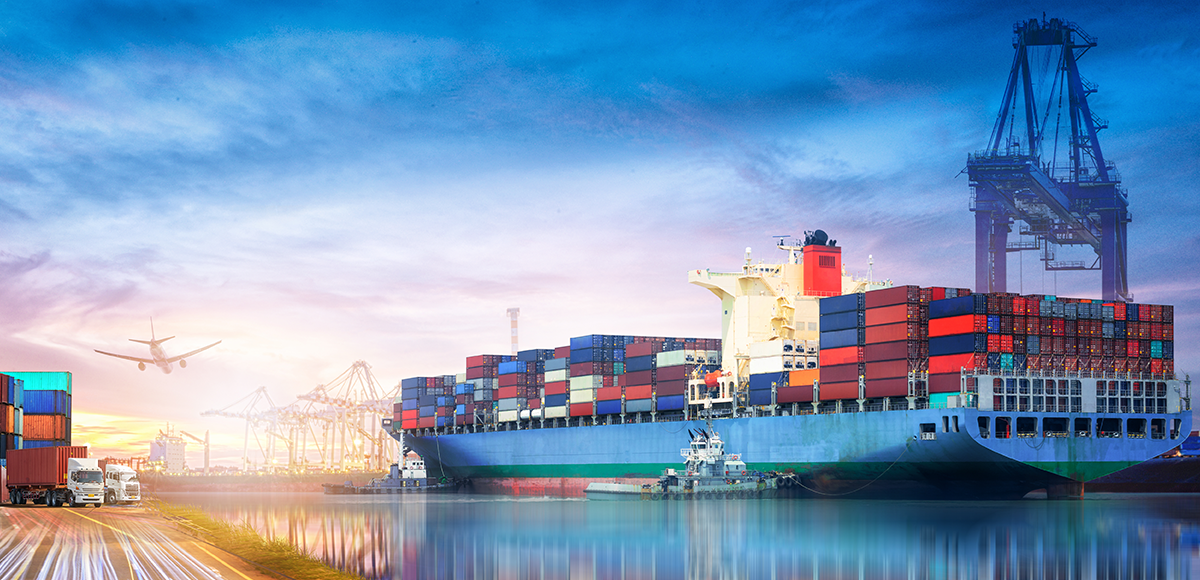
7 Global Trade Solutions to Boost Your Business: Expanding from Turkey to International Markets
In today’s interconnected world, expanding your business beyond domestic borders is not just an option—it’s often a necessity for long-term growth and sustainability. With increasing competition and rapid advancements in technology, businesses in Turkey are looking beyond national markets and eyeing global opportunities. However, expanding internationally comes with its own set of challenges, including navigating foreign regulations, adapting to cultural differences, and ensuring that logistics and supply chains run smoothly.
This is where global trade solutions come into play. By leveraging the right tools and strategies, businesses can overcome these challenges and position themselves for success in international markets. In this article, we’ll explore 7 Global Trade Solutions that can help your business thrive as you expand from Turkey to international markets, emphasizing the importance of careful planning and smart execution.
1. Utilize Free Trade Agreements (FTAs)

One of the most effective global trade solutions for businesses in Turkey looking to expand internationally is to take advantage of Free Trade Agreements (FTAs). These agreements are established between two or more countries to facilitate trade by reducing tariffs, import quotas, and export restrictions. Turkey, as a member of the Customs Union with the European Union (EU), enjoys trade advantages with the EU and has signed numerous FTAs with countries such as South Korea, Singapore, and the United Kingdom.
Benefits of Free Trade Agreements:
- Lower Tariffs: Reduced tariffs can make your products more competitive in foreign markets.
- Simplified Trade Procedures: FTAs often streamline customs procedures, making it easier to export goods.
- Market Access: FTAs provide access to new markets that may have previously been too costly or difficult to enter.
By understanding the intricacies of these agreements, businesses can significantly lower their costs and expand into new markets more efficiently.
Practical Example:
Turkish textile companies have successfully leveraged the Customs Union Agreement with the EU to export products to countries like Germany and France at reduced tariffs, making their goods more competitive compared to those from countries outside of the EU.
2. Digitalize Your Supply Chain
The second key global trade solution involves the digitalization of your supply chain. Managing an international supply chain can be complex, with multiple touchpoints, time zones, and currencies to consider. Digital tools can simplify and optimize these processes, helping businesses in Turkey reduce costs and improve efficiency.
Key Digital Tools for Supply Chain Management:
- Enterprise Resource Planning (ERP) Systems: ERP platforms integrate various business processes, from inventory management to shipping and accounting, providing a centralized platform for real-time decision-making.
- Blockchain Technology: Blockchain ensures transparency and traceability in the supply chain, reducing the risk of fraud and delays.
- Artificial Intelligence (AI): AI can forecast demand, optimize routes, and manage inventory levels, making it easier to meet global customer demands.
Practical Example:
By implementing an ERP system, a Turkish automotive parts manufacturer was able to improve visibility across its supply chain, resulting in a 20% reduction in lead times and a 15% decrease in operational costs.
Global Trade Solutions in Action:
Digital supply chains are critical for businesses expanding globally, as they provide the tools needed to manage the complexities of cross-border trade.
3. Leverage E-Commerce Platforms for International Sales

E-commerce is one of the fastest-growing global trade solutions, providing businesses with a direct route to consumers in international markets. As businesses in Turkey look to expand their footprint, e-commerce platforms like Amazon, eBay, and Alibaba offer the infrastructure needed to sell products abroad without the need for a physical presence in foreign countries.
Benefits of E-Commerce for Global Trade:
- Cost-Effective Market Entry: E-commerce platforms eliminate the need for costly international stores or warehouses.
- Wide Reach: Platforms like Amazon and Alibaba allow you to reach millions of potential customers across the globe.
- Data-Driven Marketing: E-commerce platforms provide valuable insights into customer behavior, allowing businesses to tailor their marketing strategies for different regions.
Practical Example:
A Turkish jewelry brand expanded its reach to North America by listing its products on Amazon. By leveraging the platform’s global reach and fulfillment services, the brand saw a 30% increase in sales in the first year of international expansion.
Key Consideration:
To succeed in international e-commerce, businesses should ensure that their product listings are optimized for local markets, including language, pricing, and shipping options.
4. Partner with Local Distributors and Agents
When entering new markets, partnering with local distributors and agents can provide invaluable support. These local partners understand the nuances of their markets and can help navigate regulatory hurdles, manage relationships with retailers, and ensure that products are distributed efficiently.
Benefits of Local Partnerships:
- Market Expertise: Local partners are familiar with market preferences, cultural norms, and business practices.
- Regulatory Navigation: They can help ensure compliance with local laws and regulations, which can be complex in foreign markets.
- Established Networks: Distributors and agents often have existing relationships with retailers, wholesalers, and other key stakeholders.
Practical Example:
A Turkish electronics manufacturer partnered with a local distributor in Brazil to enter the Latin American market. The distributor’s knowledge of Brazilian customs and regulations helped the company navigate the complex import process, reducing delays and ensuring timely market entry.
Global Trade Solutions at Work:
Partnering with local distributors is one of the most effective global trade solutions for reducing the risks associated with entering new markets, especially when dealing with countries that have different regulatory frameworks.
5. Adapt Your Marketing and Branding Strategy
When expanding globally, businesses must adapt their marketing and branding strategies to resonate with local audiences. A one-size-fits-all approach may not work in different cultural contexts. Instead, businesses need to localize their marketing messages, product packaging, and advertising campaigns to align with the preferences and values of the target market.
Key Considerations for Global Marketing:
- Cultural Sensitivity: Ensure that your messaging does not offend or alienate local customers.
- Language Localization: Translate all marketing materials into the local language to ensure clear communication.
- Localized Advertising: Use region-specific platforms such as WeChat in China or VK in Russia to reach your target audience.
Practical Example:
A Turkish food company looking to expand to Saudi Arabia modified its packaging to include Arabic text and adapted its marketing campaigns to reflect local cultural preferences, leading to a successful entry into the market.
Global Trade Solutions Insight:
Adapting your branding to local cultures is one of the most important global trade solutions for ensuring that your message resonates with foreign customers.
6. Stay Compliant with International Trade Regulations
Navigating the complex web of international trade regulations is essential for businesses expanding globally. Different countries have varying rules regarding customs duties, import/export restrictions, and product standards, and failure to comply can lead to costly delays or penalties.
Key Areas of Compliance:
- Customs Regulations: Understand the customs requirements of your target markets to ensure smooth entry for your goods.
- Intellectual Property (IP) Protection: Ensure that your trademarks, patents, and copyrights are protected in international markets.
- Health and Safety Standards: Some markets, such as the European Union, have strict regulations regarding product safety, labeling, and environmental standards.
Practical Example:
A Turkish pharmaceutical company expanding into the European market ensured compliance with EU health and safety standards by conducting extensive testing and obtaining the necessary certifications, preventing delays in launching their product in Europe.
Global Trade Solutions in Action:
Staying compliant with international trade regulations is critical for businesses looking to expand globally, ensuring that products can enter foreign markets without legal or logistical complications.
7. Use Trade Finance Tools to Mitigate Risk

International trade comes with inherent risks, including currency fluctuations, payment delays, and geopolitical instability. To mitigate these risks, businesses should leverage trade finance tools, which are designed to protect both exporters and importers and ensure smooth international transactions.
Key Trade Finance Tools:
- Letters of Credit (LCs): LCs ensure that the buyer’s bank guarantees payment to the seller, reducing the risk of non-payment.
- Export Credit Insurance: This insurance protects exporters against the risk of non-payment due to buyer insolvency, political instability, or other unforeseen events.
- Currency Hedging: By hedging against currency fluctuations, businesses can lock in exchange rates and protect themselves from volatile currency markets.
Practical Example:
A Turkish machinery exporter utilized a letter of credit for a transaction with a buyer in Nigeria, ensuring that payment would be made once the goods were shipped and received, thereby reducing the risk of non-payment in an unfamiliar market.
Global Trade Solutions at Play:
Using trade finance tools is one of the most effective global trade solutions for managing the risks associated with cross-border transactions, providing peace of mind for businesses venturing into international markets.
Conclusion: Expanding from Turkey to International Markets with Global Trade Solutions
As businesses in Turkey look to expand beyond their borders, leveraging the right global trade solutions is essential for success. From utilizing free trade agreements and digitalizing supply chains to adapting marketing strategies and staying compliant with international regulations, these solutions can help Turkish businesses navigate the complexities of international trade and maximize their opportunities in global markets.
By implementing these 7 global trade solutions, companies can position themselves to compete on a global scale, tapping into new customer bases, diversifying revenue streams, and building long-term sustainability in an increasingly interconnected world.
Global trade solutions not only provide the tools for successful international expansion but also enable businesses to overcome the challenges that come with operating in diverse and competitive markets. Whether through e-commerce, partnerships with local distributors, or the use of trade finance, these strategies are crucial for achieving growth and success in international markets.





